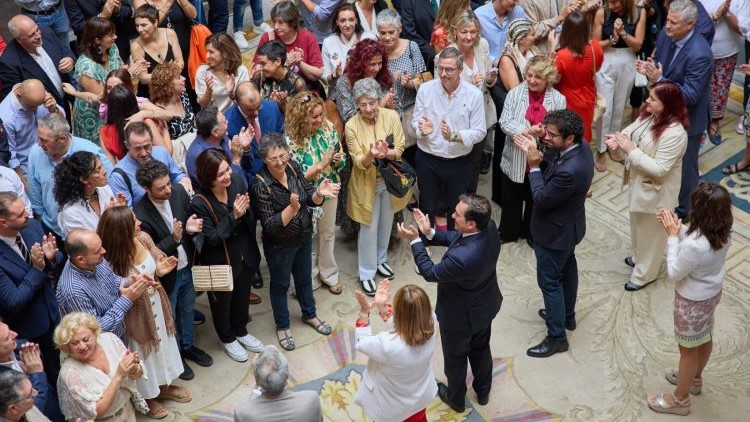The Diplomat
The Minister of Foreign Affairs, José Manuel Albares, yesterday presented the decorations of the Order of Civil Merit to the personnel who participated in the mission of the Spanish Emergency Medical Team (START, Spanish Technical Aid Response Team) after the earthquakes in Turkey last February, whose “enormous professionalism”, he assured, represents “a model for other countries”.
A total of 195 people took part in the mission, in three rotations that made it possible to attend to the most urgent needs of the civilians affected by the earthquakes in the town of Iskenderun, in the south of the country, which caused the death of more than 20,000 people. The team was made up of health personnel from the National Health System from practically all the Autonomous Communities, logisticians -from the Emergency and Immediate Response Unit of the Community of Madrid (ERICAM), firefighters from the Madrid City Council, SUMMA personnel and from the NGO Cesal-, pharmaceutical technicians from the NGO Farmamundi and experts in gender and psychosocial support from Médicos del Mundo, as well as personnel from the Spanish Agency for International Cooperation for Development (AECID) and the public company Tragsa.
In his speech, Albares praised “the enormous professionalism of a multidisciplinary team united by shared values, which represents the best of our country, our public healthcare, and is a model for other countries”. He also recalled that the START team took less than 72 hours to deploy in Turkey and set up, in just 48 hours, a field hospital equipped with an operating theater, which allowed, for 33 days, almost 7,400 people to be treated for “all kinds of pathologies”, 18 surgical interventions to be carried out and 12 babies to be delivered.
“Very few countries in the world are capable of this,” the minister declared. “You were Spain’s best ambassadors to Turkey and to the world,” he continued. “This START operation also represents the diversity of Spain and what we are capable of doing when we work as a team,” he added.
Since its launch in 2018, the START team has carried out humanitarian missions in Mozambique (following the passage of Cyclone Idai in 2019), Bata (Equatorial Guinea, following the explosion of a powder keg that devastated part of the city in 2021), Haiti (following the earthquake in August 2021) and the aforementioned one in Turkey. The START project, whose healthcare team belongs to the public health system, has the capacity to deploy, within a maximum of 72 hours, to any corner of the world where a humanitarian emergency occurs. Spain is, together with Italy and France, one of the three EU countries to have such a team.
START
Known as the “red vests”, the first rotation of the START team was seen off by Minister Albares himself before leaving the Torrejón de Ardoz air base on February 9 for Iskenderun (Hatay), one of the cities most affected by the earthquakes, to attend to the people affected by the devastating earthquakes.
Comprising a field hospital with surgical and hospitalization capabilities, the START treated almost 7,000 people from February 13, the day the hospital opened, until March 17, the day they began their withdrawal and return to Spain. Specifically, during this second mission, the START treated a total of 7,387 people, an average of 224 patients per day. After the second earthquake, the START team was able to attend to some 400 patients per day
The START was one of the first emergency teams to be deployed on the ground (just 72 hours after the official request from the Turkish authorities) and the team that treated the most patients of those arriving from the European Union. The hospital set-up was completed in just 48 hours.
In more than a month of operation, the hospital provided emergency care services, adult and pediatric medical consultation, gynecology, traumatology, physiotherapy, surgery, hospitalization, radiology, laboratory and psychosocial support.
In addition to health care provided by the START Emergency Medical Team at the field hospital, the red vests delivered shelter and WASH (water, sanitation and hygiene) materials to a camp where some 1,000 earthquake victims were staying in the vicinity of the hospital. At the camp, the START logistics team installed showers, ramps and four drinking water points. It also built an access for people with disabilities.







